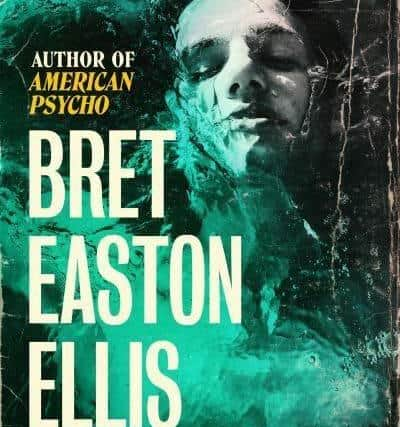Book review: The Shards, by Bret Easton Ellis
Well, well, well. I never thought I would write such a sentence but the infamous Bret Easton Ellis has accomplished something really rather singular. This is an even worse novel than Fifty Shades Of Grey. It is puerile, prurient and pretentious, and as for redeeming features, it has none. I was intrigued by Ellis’s debut, Less Than Zero, but there is a law of diminishing returns in terms of shock. The only shocking thing about being shocking is how easy and lazy it is. At least Less Than Zero, with its mixture of ennui, anomie and odium had a tiny moral in the exchange: “I don’t think it’s right”. “What’s right?” But The Shards is even without the weary nihilism. This is a tribute act done by the original performer; a 90s reunion of a solo singer to an empty auditorium.
The plot is perfunctory. There are four high school friends at the prestigious Buckley College in California in 1981, viz, Deborah, the princess-y daughter of a movie producer; Thom, the handsome quarterback jock in the sports team; Susan, the Homecoming Queen and Brett, an aspiring novelist. We learn early on that “Brett” will write such novels as Less Than Zero, American Psycho and Glamorama. Thom is dating Susan and Brett Deborah, although Brett is bisexual with markedly more interest in other guys. Into this quartet comes new kid Robert. At the same time there is a spate of worrying events. Pets are going missing, houses are being invaded, women are disappearing and a person or persons has desecrated the school statue with dead goldfish from the pond. Soon enough, after the bodies start to turn up, the idea of a serial killed nicknamed “The Trawler” begins to circulate.
Advertisement
Hide AdWhat might have been interesting is that Brett, as a wannabe writer, seems to think he can see patterns in the behaviour of the Trawler. There are similar modus operandi and odd coincidences. He doesn’t think it has anything to do with an oxymoronic violent hippy cult. Instead his entire focus is on newcomer Robert, whom it transpires early had Secrets and has had Problems and was institutionalised. It is a version of apophenia, the seeing of connections between unconnected things, and, when first coined was a symptom supposedly of schizophrenia. Mind you, Brett and the others are on such a cocktail of Valium, cocaine, marijuana and Quaaludes it might be difficult to make a cast-iron diagnosis.


There is something almost sad about Ellis’s work, in that he has been outflanked on every side. If you are drawn to gore and gross-out, then there is Chuck Palahniuk. If you want preppy, claustrophobic privileged mystery, there is Donna Tartt. If you want self-referential, metafictional postmodernism, you can read Charles Yu. If you want Weltschmerz and the emotionally and moral toxic effects of capitalism, there is always David Foster Wallace.
There is almost no point whatsoever in describing the gruesomeness. Brett keeps on telling us he feels numb, and numbness is not the only emotion this book generates in the reader. There is something needy about trying to out-do oneself. Let me just say that Jake and Dinos Chapman do this kind of grotesque far better in the visual arts. There are features that again seem like self-plagiarism: product placement instead of personality, mix-tapes as a form of emotional prosthesis. “It means nothing to me. This means nothing to me” (a line from the Ultravox song Vienna) becomes a refrain and a substitute for the conveying of genuine emotion.
I will give The Shards one accolade. If I ever do go to Los Angeles, which is staggeringly unlikely, I will not require a Baedeker, as Ellis is pernickety about traffic. At times, this novel reads like a rather pompous individual giving directions to a bemused foreign visitor. Take this sample of deathless prose: “But there was a break in the traffic crossing Ventura and streaming up Beverley Glen... curving past the Casa de Cadillac dealership on the corner and coming to a stop at the red light on Van Nuys. I waited there too. The light at the intersection of Van Nuys and Ventura turned green and I followed Robert past the Sherman Oaks Newsstand and farther down, at the end of the block, Tower Records...” It goes on, and this is far from an isolated example.
In the most blatant wink at the reader, Brett rehearses his pitch to his girlfriend’s father: “a boy, his friends, young people in LA, sexy, a bit bi, drugs, someone is killed, there’s a chase, violence and bloodshed, a mystery the boy solves or maybe not, I preferred the downer ending but we could make it upbeat as well”. The revelations of exploitative and coercive behaviour in the film industry are probably better documented in non-fiction, but it is curious here, since the advent of #MeToo. Brett thinks of sex as inconsequential, no biggie as it were, so why not go along with things if ambition is more urgent? These are queasy questions, and it would take a subtler novelist than Ellis to give a true analysis. Ellis, despite his initial success, is not a serious writer. Should you buy this book? No.
The Shards, by Bret Easton Ellis, Swift, £20